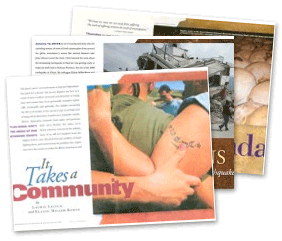This year marks the 20th anniversary of the massive genocide in Rwanda. Over the next two years those imprisoned for perpetrating the genocide will be released back into their communities. This collaborative project between Threshold GlobalWorks (TGW) and the Center for Council introduces the practice of Council and TGW’s Social Resilience Model’s self-regulation training to inmates on two prison yards in Rwanda, as a support to the rehabilitation and reintegration process. As participants reach the end of incarceration, they will be woven into a network of Council-based programs being led by SRM trained NGO workers in the communities to which they are about to return – processes used will be very similar to the model unfolding through Center for Council’s work in California prisons.
While rehabilitative practices have been attempted in Rwanda, post-Genocide, services were typically offered only to those perpetrators who had been assigned to “community service” by the Gacaca courts. Uniquely, this program provides services to prisoners who have been sentenced to long terms and are now coming home in large numbers and seeking reintegration and reconciliation.
The conference, The Role of Council and Self-regulation Training in Offender Reentry into Community in Rwanda: A Dialogue, supported by the Rockefeller Foundation and held at their conference center in Bellagio, Italy, will bring together key project constituencies from the U.S. and Rwanda to provide an opportunity to explore findings from the current pilot and suggest ways in which Council-based programming with the addition of SRM skills training to stabilize the nervous system can provide a framework that can be implemented in reentry contexts and in situations of fractured communities. It can provide a model to address an intractable and growing problem for cities and communities—one in which severe splits along key elements of community diversity interfere with economic development, employability, principled behavior, and resilience at the individual and community levels.
